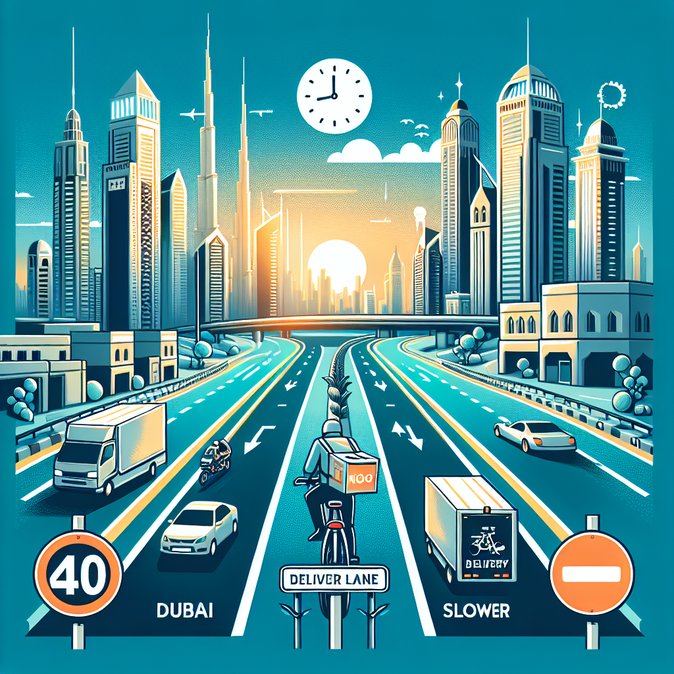
In a move aimed at reducing accidents involving the burgeoning gig-economy fleet, Dubai’s Roads and Transport Authority (RTA) and Sharjah Police on November 1, 2025 began enforcing strict lane bans for delivery motorcycles. Riders are now barred from the two left-most “fast” lanes on multi-lane roads and face fines of up to Dh1,500 and 12 black points for violations. Heavy vehicles and buses must also stay in designated right-hand lanes.
The rules follow a 23 per cent spike in delivery-bike collisions recorded in the first half of 2025. With e-commerce orders in the UAE forecast to hit US$14 billion this year, the authorities say safety has become an economic imperative. Major platforms such as Talabat, Deliveroo and Careem NOW have issued rider bulletins and updated GPS routing to steer couriers onto compliant lanes.
![UAE Imposes New Lane Restrictions on Delivery Riders to Curb Road Risks]()
For corporate mobility managers, the regulations matter because last-mile partners will need to adjust delivery schedules, especially during peak traffic. Companies that employ in-house rider fleets must retrain staff and update insurance coverage to reflect the new penalties.
Logistics analysts predict short-term delivery delays but see potential long-term gains as safer roads lower insurance premiums and vehicle downtime. They also expect the measures to accelerate adoption of micro-mobility alternatives—such as e-bikes permitted on service roads—that can legally bypass the restrictions.
Enforcement teams equipped with AI-enabled roadside cameras have already begun issuing automated fines, underscoring the zero-tolerance stance. Businesses are advised to audit their delivery routes immediately to avoid disruptions and costs.
The rules follow a 23 per cent spike in delivery-bike collisions recorded in the first half of 2025. With e-commerce orders in the UAE forecast to hit US$14 billion this year, the authorities say safety has become an economic imperative. Major platforms such as Talabat, Deliveroo and Careem NOW have issued rider bulletins and updated GPS routing to steer couriers onto compliant lanes.

For corporate mobility managers, the regulations matter because last-mile partners will need to adjust delivery schedules, especially during peak traffic. Companies that employ in-house rider fleets must retrain staff and update insurance coverage to reflect the new penalties.
Logistics analysts predict short-term delivery delays but see potential long-term gains as safer roads lower insurance premiums and vehicle downtime. They also expect the measures to accelerate adoption of micro-mobility alternatives—such as e-bikes permitted on service roads—that can legally bypass the restrictions.
Enforcement teams equipped with AI-enabled roadside cameras have already begun issuing automated fines, underscoring the zero-tolerance stance. Businesses are advised to audit their delivery routes immediately to avoid disruptions and costs.









